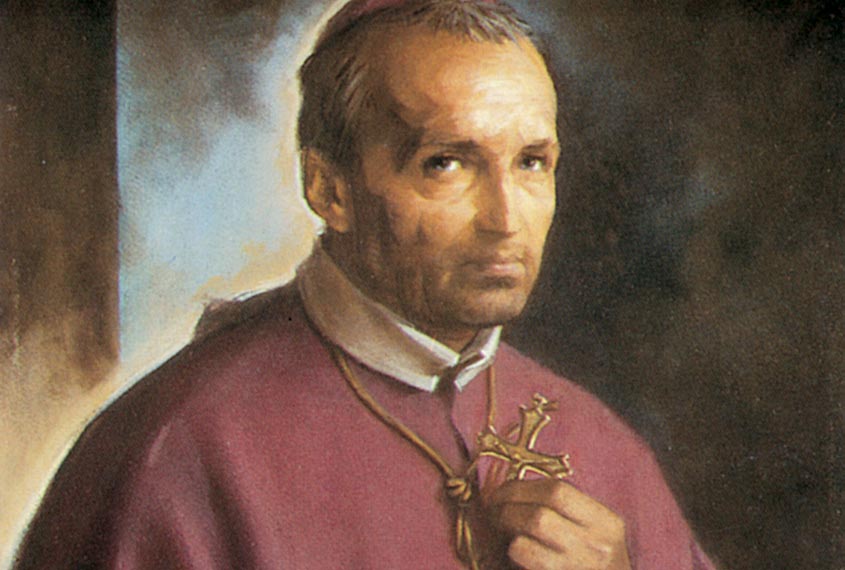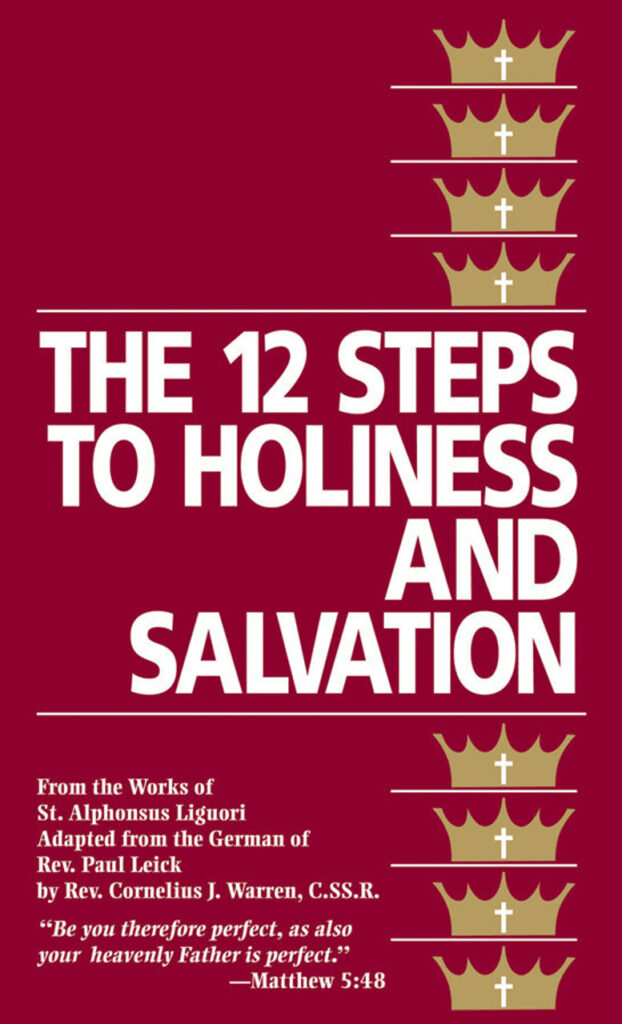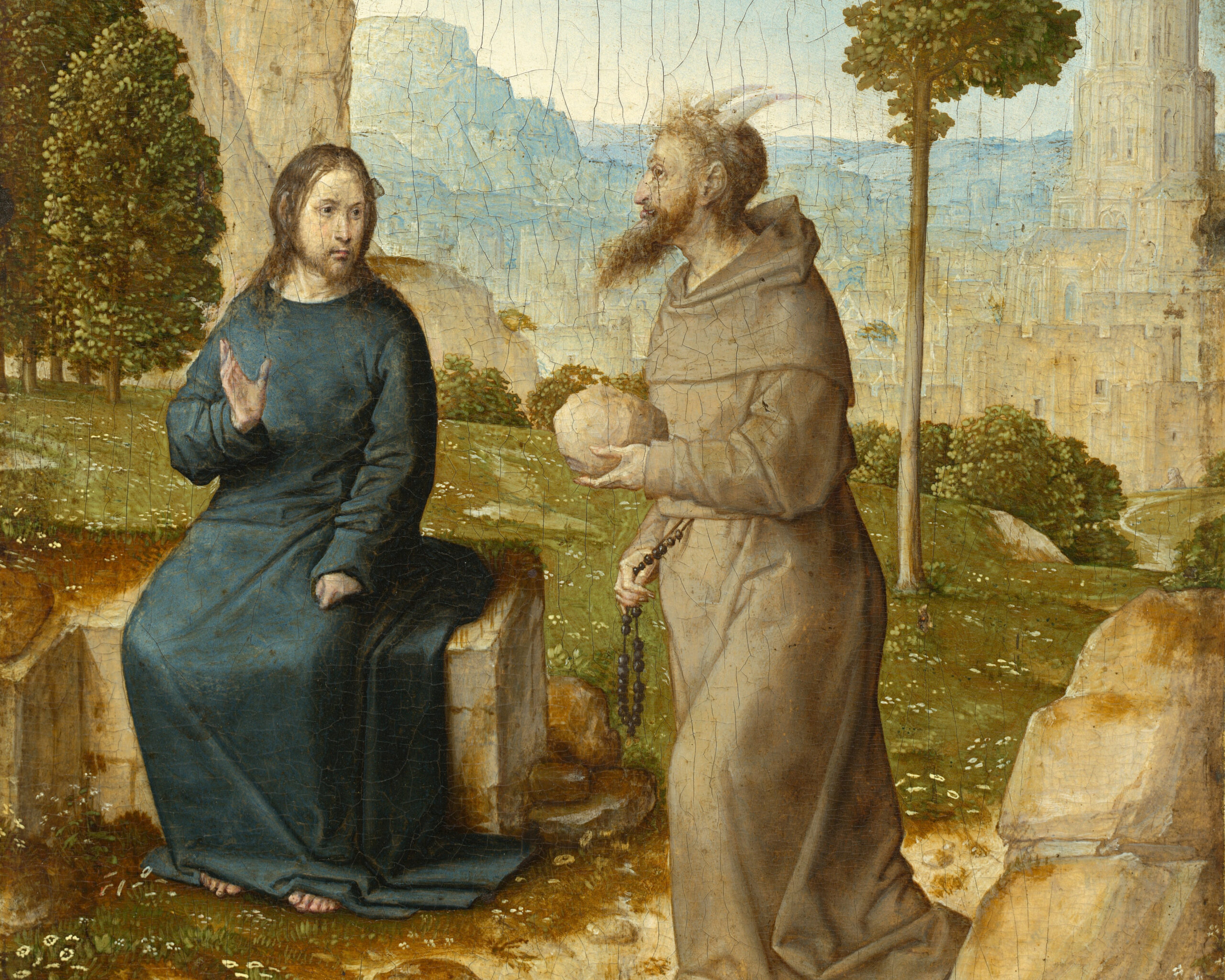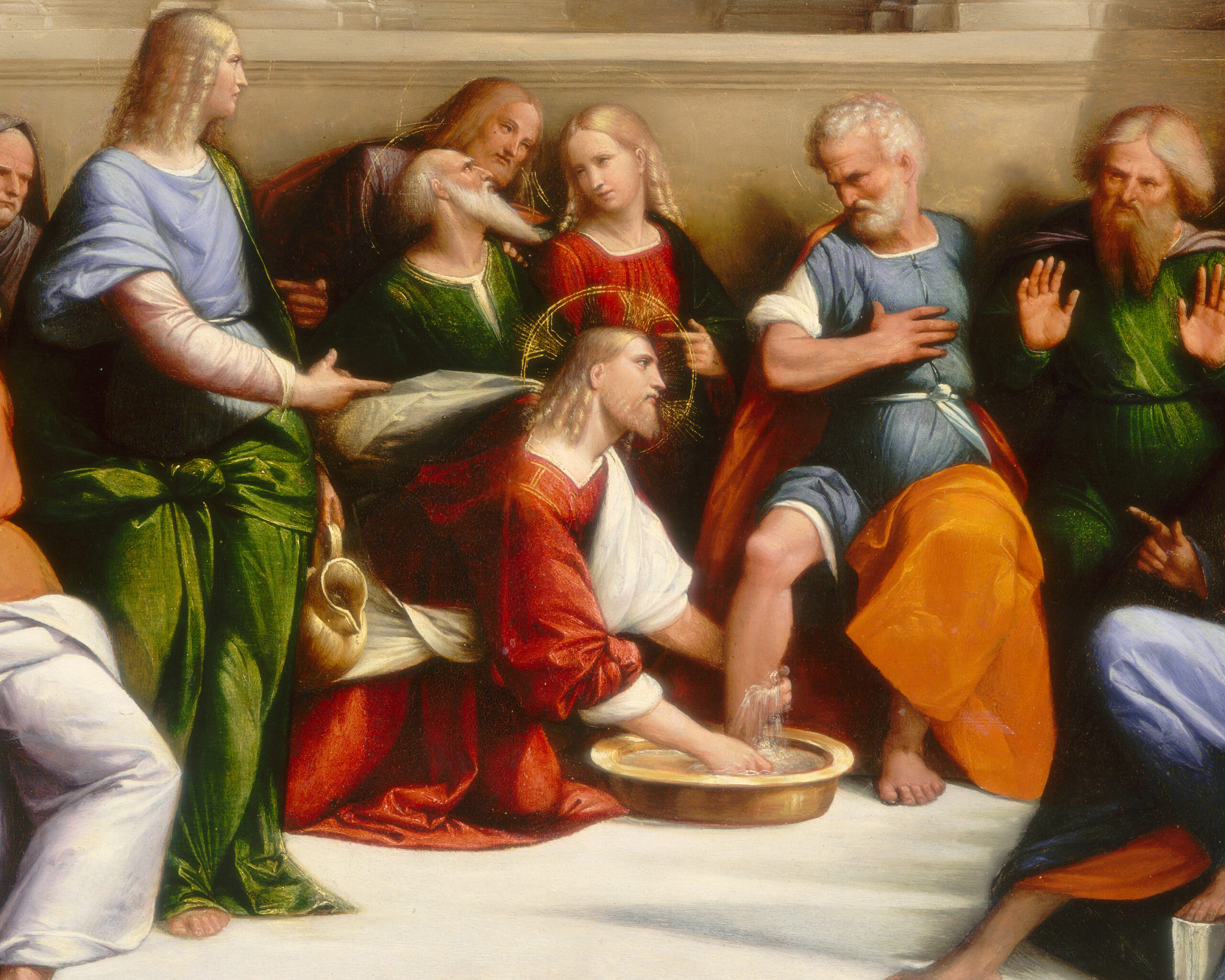12 Steps to Holiness and Salvation is an essential work by St. Alphonsus Liguori guiding the soul through twelve key virtues that lead to sanctity. This excerpt focuses on the virtue of mortification and all its merits.
The virtue of mortification is twofold, exterior and interior. Exterior mortification consists in doing and suffering what is opposed to the exterior senses and in depriving oneself of what is agreeable to them. In as far as it is necessary to avoid sin, every Christian is bound to practice mortification.
With regard to those things that we may lawfully enjoy, mortification is not obligatory, but it is very useful and meritorious. For those, however, who are striving after perfection, mortification, even in things that are lawful, is absolutely necessary. As poor children of Adam, we must fight till our dying day; “For the flesh lusteth against the spirit, and the spirit against the flesh, for these are contrary, one to another: so that you do not the things that you would.” (Gal. 5:17).
It is proper to animals to gratify their senses; it is characteristic of angels to do the Will of God. From this a learned author concludes that we become angels when we strive to do God’s Will, but we become like animals when we seek to gratify our senses. Either the soul must subject the body, or the body will make the soul its slave. Accordingly, we must treat our body as a rider treats a wild horse; he draws the reins tight, lest he should be thrown off.
Self-Denial
But, you will say, I have a weak constitution and poor health, and my confessor forbids me to practice works of penance. Very well, obey him, but at least bear patiently with the discomforts and fatigue resulting from your bodily condition; try not to complain of the inclemency of the weather and the excessive heat and cold. If you are unable to practice works of penance, at least abstain occasionally from some lawful pleasure.
When St. Francis Borgia was out hunting, at the moment the falcon would seize its prey he used to cast down his eyes to deprive himself of the pleasure such a sight would afford him. If you deny your body lawful pleasures, it is not apt to seek unlawful ones, but if you indulge in all the lawful enjoyments, you will soon cross the line into forbidden territory.
A great servant of God, Vincent Carafa, S.J., says that the Lord has given us the joys and pleasures of this world not only that we may enjoy them but also that we might have an opportunity of making a sacrifice, by depriving ourselves of them for love of Him. Poisons properly compounded, and taken in very small quantity, are sometimes beneficial to the health of the body, but they are and always will be poisons. And so it is with pleasures; they must be indulged in with great precaution and moderation and solely with the view of serving God more faithfully.
Moreover, we must be on our guard lest anxiety and solicitude for our bodily welfare endanger the health of the soul. “The sickness of the body,” says St. Bernard, “excites my compassion, but the sickness of the soul causes me greater affliction because it is much more dangerous.” We are very apt to make our bodily ailments a pretext for exemption from our spiritual duties. “We omit prayer today,” says St. Teresa, “because we have a headache; tomorrow because we had a headache, and the next day because we fear we might get one.”
Advantages of Mortification
It Elevates the Soul
Mortification raises the soul to God. St. Francis de Sales says: “The soul can never ascend to God unless the body is brought into subjection by penance.” “Souls that truly love God,” says St. Teresa, “have no desire for bodily rest and indulgence.” But by mortification, we may attain great glory in Heaven.
“If contestants,” says St. Paul, “abstain from everything that might weaken the body and prevent them from winning a perishable crown, with what greater zeal ought not we to mortify ourselves in order to obtain a priceless and eternal crown!” St. John saw the blessed in Heaven with palm branches in their hands. From this it is evident that to be numbered among the elect we must all be martyrs, either by the sword of the tyrant or by mortification.
Interior Mortification
Interior mortification consists in restraining our inordinate self-love and self-will. There is a twofold love of self, the one good and the other bad. The former spurs us on to strive for eternal life, for which God has created us; the latter prompts us to seek for the good things of this earth, to the great detriment of our immortal soul. Christ Our Lord has said: “If any man will come after me, let him deny himself.” (Matt. 16:24). Now, all the perfection of a soul consists in this very self-denial, for St. Augustine says: “The less one seeks to gratify the passions, the more one truly loves God, and when one desires nothing but God, one’s love of God is perfect.”
Self-Conquest
All exercises of piety are nothing else but means to arrive at virtue. Consequently at Holy Communion, during meditation, while visiting the Blessed Sacrament, and while performing other acts of devotion, we must always ask God for the grace to be humble, mortified, obedient, and conformed to His holy will. To act only from self-love is a fault in every Christian, but it is a greater fault in him who has received a greater measure of grace and is on that account bound to strive more earnestly after perfection. “By means of self-denial,” says Lactantius, “God calls men to eternal life; by the gratification of self-love Satan calls them to eternal death.”
ooo
This article is taken from a chapter in 12 Steps to Holiness and Salvation by Fr. Joseph Sicardo, OSA which is available from TAN Books.









